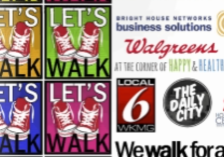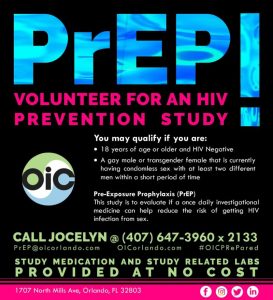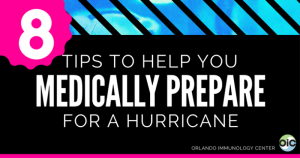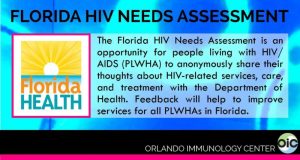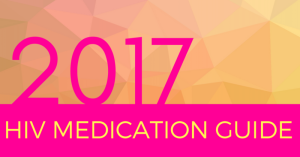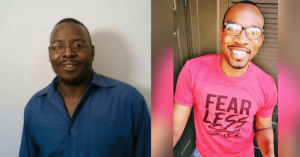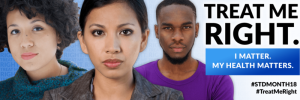What Is Usually the First Sign of HIV?
- What is HIV?
- What are the signs of an HIV infection?
- What is an HIV test?
- What if my HIV test result is positive?
HIV, or the human immunodeficiency virus, exists within the bodies of more than 1.2 million Americans. Each year, more than 35,000 new infections emerge. If left untreated, the virus can lead to acquired immunodeficiency syndrome (AIDS).
Since the beginning of the AIDS epidemic, more than 700,000 Americans have died from complications stemming from this disease. Even though HIV is no longer in the news all that often, it is clear that the disease continues to make an impact in this country. This blog will help you understand HIV, the symptoms of the disease, and how you can get help.
What Is HIV?
HIV stands for “human immunodeficiency virus.” We believe HIV came from the infected blood of chimpanzees in Central Africa. Some studies show this leap between species could have happened as far back as the late 1800s. Over time, HIV spread slowly but steadily across Africa and into other parts of the world.
In the early 1980s, doctors discovered a cluster of untreated HIV-positive patients who developed complications from what would later be called AIDS. In September 1982, the U.S. Centers for Disease Control and Prevention used the term AIDS and defined what this life-threatening illness looked like. Doctors learned that HIV could be transmitted in the blood and bodily fluids from infected people. By 1997, AIDS-related deaths in the United States were on the decline.
Today, we understand how to prevent the spread of HIV. Although we currently don’t have a cure for the virus, there are treatments available to help manage the disease.
New medications help people living with HIV to live long, happy lives. Taking these medications can reduce the viral load of HIV in your blood to the point where it is undetectable, reducing the chance of passing HIV to an unprotected partner or on to an unborn child.

What Are the Signs of an HIV Infection?
Fever is usually the first sign of an HIV infection. Many people also experience other flu-like symptoms as the disease manifests itself two to four weeks after exposure. This early, acute phase of HIV can last up to several weeks. Some of the other possible signs of the infection include:
- Chills
- Cough
- Diarrhea
- Fatigue
- Headache
- Mouth sores
- Muscle aches and pain in the joints
- Night sweats
- Skin rash
- Sore throat
- Sores in the mouth
- Swollen lymph nodes
- Weight loss
Knowing you have HIV is almost impossible without a test. That’s because the disease can masquerade as other illnesses and sometimes may not have symptoms at all at first. At least 13% of people with HIV don’t even know they have the virus. This makes it much more likely that they will spread the disease to others. If you’ve had unprotected sex recently, the only way to know if you have HIV is to get tested.
What Is an HIV Test?
A confidential HIV test can be performed by your doctor. There are three types of tests that look at your bodily fluids to check for signs of HIV: nucleic acid tests (NAT), antigen/antibody tests, and antibody tests.
- NAT tests require drawing your blood to look for both the presence of HIV and how much of the virus is present, known as your “viral load.” The benefit of a NAT test is that it can detect HIV earlier than other types of tests. The downside is that these tests are very expensive. Typically, we use this test if you’re exhibiting HIV infection symptoms or if you’ve had a high risk of exposure to the virus.
- Antigen/Antibody tests also draw blood, although there is a rapid test that requires a finger stick. This type of testing searches for antibodies that are produced in the blood by your immune system to fight the HIV invading cells. If HIV is in your body, you will produce an antigen called p24. The test looks for p24 as well as the antibodies that signal your body is fighting the infection.
- HIV Antibody tests just look for antibodies to HIV in your blood or oral fluids. These tests also require blood to be drawn from a vein.
The time for receiving test results spans several days to less than a few hours. Talk with your doctor about what type of test is right for you.

What If My HIV Test Result Is Positive?
If you had an antibody test and the result was positive, the first thing to do is get a follow-up test to confirm the results. If the follow-up test is positive, it means you have HIV. We know how stressful this diagnosis can be. You will feel many emotions such as anger, fear, or sadness.
Having HIV does not mean you have AIDS, which is the most severe and advanced form of the illness. Please know that millions of people live decades with HIV and have full, happy, productive lives. To start down that path, the next step after your diagnosis is to get HIV treatment immediately.
Antiretroviral therapy (ART) is the process of taking medication to treat your HIV infection. While ART cannot cure HIV, it can keep your symptoms from progressing. Reducing the HIV in your body also means that you lower the risk of transmitting the disease to someone else. Everyone who has HIV, no matter their symptoms, typically takes medications to lower the viral load in the body.
Today, we have a variety of medications available to treat your HIV. There are seven classes of drugs, all with different effects on the body, so talk with your doctor about a personalized drug therapy regimen designed specifically for you, your body, and your treatment goals.
A diagnosis of HIV, while serious, doesn’t mean your health has to decline. Get tested, and talk with the team at the Orlando Immunology Center about your options.
More Articles
Dr. DeJesus Recognized by Orlando Magazine
For the 5th consecutive year, Dr. DeJesus has been recognized by his peers in Orlando Magazine for his work as medical director at Orlando Immunology Center. Dr. DeJesus is a graduate from the University of Puerto Rico, School of Medicine. He completed his Internal Medicine training and Infectious Disease fellowship at the Medical College of…
Read MoreJoin OIC at the 2015 AIDS Walk Orlando
Orlando Immunology Center is pleased to announce that we will again be sponsoring a team at this year’s 2015 AIDS Walk Orlando. If you are interested in joining our team or donating to this worthwhile cause, please let us know. Saturday, March 28, 2015 In Florida, 15% of all new HIV infections reported among females…
Read MoreOIC Wins Wave Award for Favorite Local Healthcare Professional
The Orlando Immunology Center (OIC) announced today they have received the Central Florida/Orlando 2015 Watermark Awards for Variety and Excellence (WAVE) Award for favorite local healthcare professional. “We see this as a huge honor and will continue to do everything in our power to help patients from all walks of life be healthy, happy and…
Read MoreBig Gay Brunch
In conjunction with Come Out with Pride 2016, Big Gay Brunch presented by Orlando Immunology Center, will feature an amazing brunch spread, bottomless mimosas and a Bloody Mary bar, entertainment and special surprise performances. Eat, drink and come out with pride! Come join us and get your tickets today!! OUR TEAM REQUEST AN APPOINTMENT
Read MoreNew PrEP Study
New PrEP Study 5/19/17 UPDATE – This is an ongoing study but enrollment has closed. Orlando Immunology Center is excited to announce a new study for Pre-Exposure Prophylaxis (PrEP). Pre-Exposure Prophylaxis (PrEP) This study is to evaluate if a once daily investigational medicine can help reduce the risk of HIV infection from sex. You may qualify…
Read More8 Tips to Help Medically Prepare For a Hurricane
Here are 8 tips to help medically prepare for a hurricane. Hurricanes can be incredibly destructive bringing lots of wind and rain over an extended period of time. Orlando Immunology Center wants to ensure that you are medically prepared in the event Central Florida finds itself in the path of one of these major storms.…
Read MoreFlorida HIV Needs Assessment
What is the Florida HIV Needs Assessment? The Florida HIV Needs Assessment is a survey conducted by the Florida Department of Health (DOH). The survey asks people living with HIV in Florida questions about their healthcare. It only takes about 5 minutes and is completely anonymous. It is an opportunity for People Living With HIV/AIDS (PLWHA) to share their…
Read More2017 HIV MEDICATION GUIDE
Here is POZ Magazines 2017 HIV Medication Guide for quick reference to HIV medication options. We’ve come a long way in the treatment of HIV. Today, there are many safe and effective drugs on the market that are easy to take and have fewer side effects. It’s very important to get onto treatment as soon…
Read MoreReports: Publix Denying Employees Access to HIV Prevention PrEP
Multiple sources are claiming that Publix is denying employees access to the HIV prevention regimen PrEP (Pre-Exposure Prophylaxis). The PrEP regimen includes regular doctor visits, labs, HIV prevention education and taking 1 pill once a day. It can be up to 99% effective at preventing HIV transmission and is recommended by the Center for Disease…
Read MorePublix Reverses Course; Covers PrEP
In an unexpected but welcomed move, Publix reverses course; covers PrEP. Less than 24 hours after Representative Carlos Guillermo Smith met with Publix officials regarding their controversial decision to not cover PrEP (Pre-Exposure Prophylaxis) in their insurance, Publix is reversing course and will expand coverage to include PrEP. Publix made the announcement by responding to…
Read MoreOrlando Advocates Raise HIV Awareness
Orlando advocates raise HIV awareness through a variety of new, groundbreaking projects. National Black HIV AIDS Awareness Day (NBHAAD) February 7th brings into sharp focus the importance of these pioneering approaches to address the HIV epidemic in Central Florida. NBHAAD is a national HIV testing and treatment community mobilization initiative targeted at Blacks in the…
Read MoreSTD Awareness Month 2018
OIC is excited to be joining with the CDC and other national organizations to be supporting STD Awareness Month 2018 with this year’s theme: Treat Me Right. The CDC created STD Awareness Month in April to raise awareness about STDs and increase education, prevention, testing and treatment in the community. STDs are at a record high across the…
Read MoreFree HIV Testing During Gay Days 2018
Free HIV testing during Gay Days – make it part of your celebration! It serves as an important reminder that we can have fun and know our status. Here’s a quick breakdown for locations and times for free HIV testing during Gay Days. Doubletree Hotel – 10100 International Drive, Orlando Florida – Citrus Room A Thursday…
Read More
